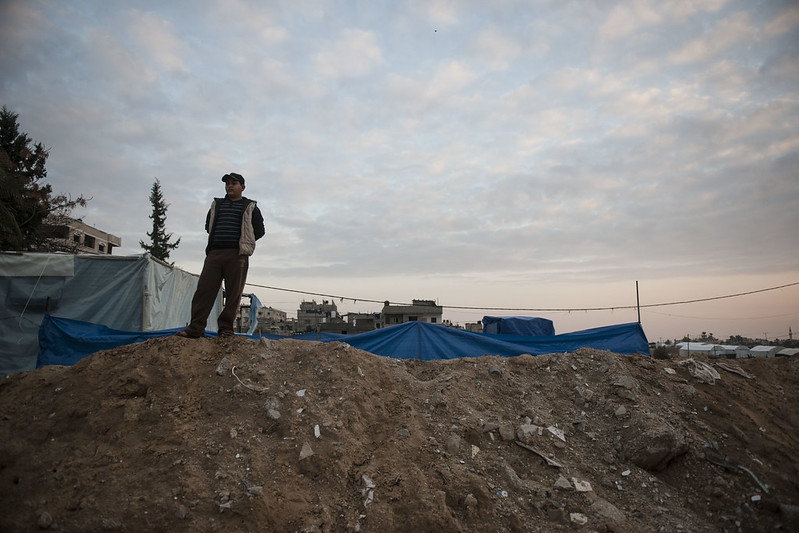The Rafah Border Crossing Opening and Rebuilding Palestine
 The Rafah border crossing, situated between the Gaza Strip and Egypt, has historically served as Gaza’s sole passage to the outside world that does not traverse Israel. Established following the 1979 Egypt–Israel peace treaty, it has long been a critical route for Palestinians seeking medical treatment. During times when other crossings were closed or restricted, the Rafah border crossing became a vital lifeline for the region.
The Rafah border crossing, situated between the Gaza Strip and Egypt, has historically served as Gaza’s sole passage to the outside world that does not traverse Israel. Established following the 1979 Egypt–Israel peace treaty, it has long been a critical route for Palestinians seeking medical treatment. During times when other crossings were closed or restricted, the Rafah border crossing became a vital lifeline for the region.
The Impact of the Border’s Closure
The Rafah border crossing was sealed in early May 2024 following Israeli military actions. During an offensive in the southern part of Gaza, Israeli forces seized control of the Palestinian side of the crossing. This closure severely hindered the delivery of humanitarian aid and the evacuation of the injured, exacerbating the humanitarian crisis in Gaza.
Tania Hary, director of Gisha, an Israeli human rights group, stated, “The most vulnerable residents of Gaza—its children, sick, and elderly—are paying the highest price” as a result of the closure, The New York Times reports.
The border’s closure left more than 2 million Palestinians trapped in Gaza without access to medical treatment or relief, adding to the region’s suffering.
Before the reopening, more than 6,000 patients were ready for evacuation for medical treatment abroad, and more than 12,000 patients were in urgent need due to the collapse of Gaza’s health system.
Reopening and Humanitarian Efforts
Since the Rafah border crossing reopened, Gaza’s Health Ministry has reported that 37 children could enter Egypt for medical treatment, with approximately 60 family members accompanying them, according to AP News. This marked a significant success for those advocating for medical evacuations.
Several organizations have stepped forward to support these efforts.
The EU has reactivated its civilian mission to monitor the Rafah border crossing, deploying personnel to support Palestinian border officials. This initiative aims to ensure the efficient transfer of individuals requiring medical care out of Gaza.
International Network for Aid, Relief and Assistance (INARA) has been instrumental in organizing evacuations and ensuring that those in need, especially children, receive the treatment they urgently require.
The World Health Organization (WHO) has been actively involved in coordinating medical evacuations, providing logistical support, and advocating for expedited transfers. It estimates that between 12,000 to 14,000 Palestinians require urgent medical care outside of Gaza.
Looking Ahead: The Path to Recovery
Despite the successful evacuation of some individuals, the process remains laborious. Arwa Damon, founder of INARA, described the evacuation of 2,500 Palestinian children requiring lifesaving medical care as a lengthy and complicated process. Parents or guardians must first apply for medical evacuation, after which the Health Ministry in Gaza reviews the cases and categorizes them based on urgency.
While the Rafah border crossing reopening has provided immediate relief, Gaza still faces immense challenges in its reconstruction efforts. The conflict has left extensive damage to infrastructure, with thousands of homes destroyed, and critical facilities like hospitals and schools severely impaired. The United Nations estimates that rebuilding Gaza will require more than $1.2 billion just to clear the rubble and could until 2040 to rebuild the shattered houses.
Security Concerns and International Efforts
The situation remains unstable, with fragile ceasefire talks still in progress. The outcome of these negotiations remains uncertain, as both local and international actors continue to push for a resolution. The international community’s continued involvement will be essential in navigating these complex negotiations.
The reopening of the Rafah border crossing is a vital step toward alleviating the immediate humanitarian crisis in Gaza. However, substantial challenges persist. Long-term recovery will require continued international support, effective coordination, and the removal of material restrictions that hinder the region’s reconstruction.
– Mmanoko Faith Molobetsi
Mmanoko is based in Pretoria, South Africa and focuses on Good News and Politics for The Borgen Project.
Photo: Flickr
